The Author Behind Netflix’s ‘Maid’ Series Talks Parenting
Stephanie Land, author of "Maid," discusses her book, her daughters and the very relatable story of a mother’s will to fight for her family.
Stephanie Land doesn’t eat peanut butter anymore. That’s because she basically lived off the stuff at a time when she worked as a maid for $9 an hour, while also balancing duties as a single parent and taking online college classes. Fast-forward a decade, and she’s the author of The New York Times bestseller, “Maid: Hard Work, Low Pay, and a Mother’s Will to Survive,” which was turned into a Netflix series that debuted on Oct. 1, 2021. Most recently, she finished writing a second book, “Class: A Memoir of Motherhood, Hunger, and Higher Education,” set to be released on Nov. 7, 2023.
By every definition, she’s a success story. But that’s not what she’s here to talk about. She’s here to shed light on the struggles of the working class. To tell the story of single mothers everywhere fighting for government assistance just so they can go to work at thankless jobs for minimum wage. Hers is just one example of the 6.67 million families in America who receive some sort of government assistance — and the story isn’t rosy.
“Maid” starts with Land’s 9-month-old daughter, Mia, learning to walk in a homeless shelter. The two had just escaped the abuse brought on by Mia’s father, and without any other family to lean on, they embark on 268 pages worth of what can only be described as a struggle to survive on their own. Several moves, dirty houses cleaned, doctor’s office visits and, yes, countless peanut butter sandwiches later, Land is able to take her daughter to Missoula, Montana, to fulfill her dream of earning an English degree at the University of Montana.
We had the chance to speak with Land, rather fittingly, on International Women’s Day in 2019 about her book, her daughters (Mia and Coraline) and the very relatable story of a mother’s will to fight for her family.
FamilyMinded: When did you realize you would be a single mother?
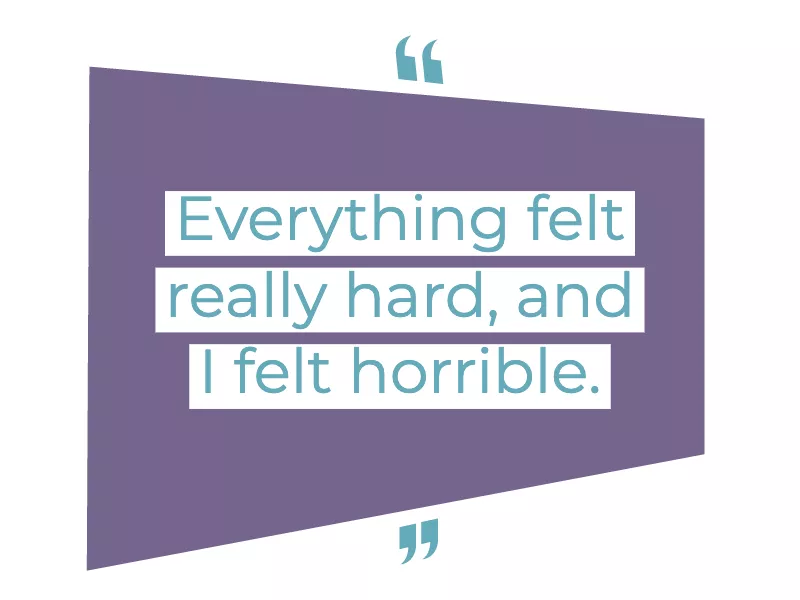
Stephanie Land: I don’t know. I don’t think I was ever really certain that I wouldn’t be. It was kind of a dream [to not be], but I instinctively knew, just because of what was going on in my relationship, that it probably wasn’t going to work out that way. Everything felt really hard, and I felt horrible. I was alone for most of the pregnancy.
It was that scene [from the book] when the police officer came to the kitchen [after a domestic dispute]. I think that was when I knew I couldn’t go back and needed to be done. That’s not to say I never tried or wanted to go back, but that’s when I knew I was at a fork in the road.
FM: How were your own needs sacrificed in an effort to provide for your daughter?
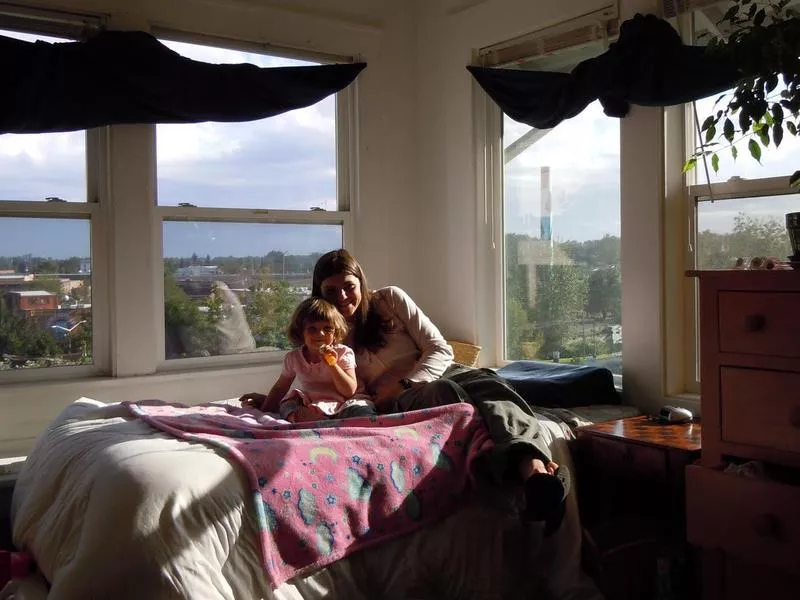
Land and Mia pose in their Washington apartment. Stephanie Land
SL: I guess food. I’m still kind of like that. Even though I’m way more privileged now and more financially secure, I’ll still buy berries for my daughters and won’t eat them because, you know, they’re for the kids. A lot of that is just kind of being a mom.
Another thing that comes to mind that changed a lot now that I have means is that I go to therapy regularly. That has been incredibly helpful to have that validation and someone willing to listen and say, ‘It’s hard.’ I needed that back then. I just needed someone to say, ‘What you’re doing right now is incredibly difficult.’ And I probably wouldn’t have felt like such a complete and utter failure.
Nowhere to Turn
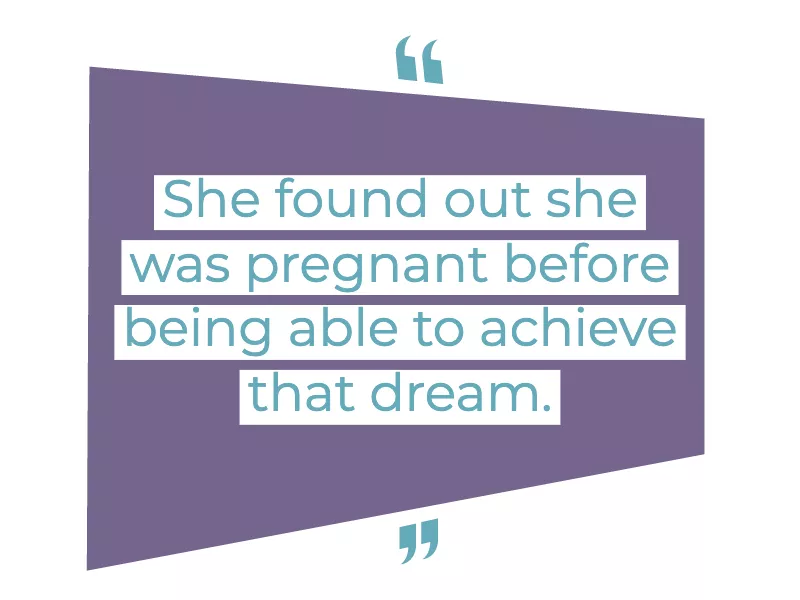
Land hadn’t always felt that alone though. She grew up in a typical middle-class neighborhood in Anchorage, Alaska, with her two parents and brother. After graduating high school, she had plans to eventually attend college to pursue a career in creative writing.
Working odd jobs in Washington throughout her 20s, she found out she was pregnant before being able to achieve that dream. Her parents divorced, which led her mother to move to Europe. Her father, hit hard by the 2008 recession, got remarried and lived in a trailer a couple hours from Land, but wasn’t able to help much either.
The lack of family support was something that surprised Land — perhaps best depicted in a restaurant scene from the book in which her mother asks her to pay for a burger she can’t afford. As one of the last encounters the two ever shared, the scene still pains Land to this day. Same goes for similar instances she had with her father.
FM: Your relationship with your parents seemed to change into adulthood, which a lot of people can relate to. What was the realization that you couldn’t depend on your parents anymore like for you?
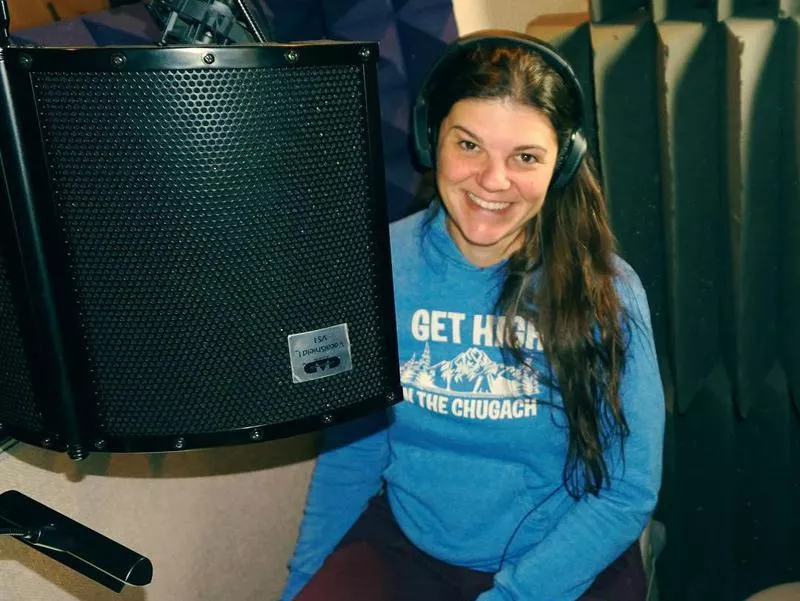
Land records the audiobook for “Maid.” @stepville / Instagram
SL: I felt very marooned and very alone; it’s a weird feeling. My parents got divorced when I was 21 or 22, and I kind of lost that home feeling. I could no longer go home for Christmas in the same way, so I was kind of used to that. But there were a few times when, as a last resort, I reached out to my family sincerely needing help. The last time I reached out to my dad was one of those times, and he just said, ‘Wow, Steph, that’s a lot, and I’ll call you back.’ And he never did.
So, it’s kind of moments of this extreme disappointment and this feeling that there’s no one standing behind me — I am the only person that I have to fall back on. That fundamentally changed me in such a hard way because I’m still like that when I get really overwhelmed and freaked out for some reason. There were some times on book tour that [I felt that way], and there was nobody who could really help me. My reaction has always been this response of just, ‘I only have myself, there’s nobody.’ So, I have this negative downward spiral of thoughts; it’s been a dangerous thing sometimes if I really get sucked into that.
I look at people whose families still help them out as adults, and I can’t even imagine what that would be like. Of course, it’s also changed how I parent my kids and how I will parent my kids into adulthood. I feel like it made me a better parent, but not necessarily a better person. That is one instance in which the therapist comes in handy.
FM: At one point you mention being scared of “immersing Mia in a world of poverty.” What about that truth was the most difficult for you?
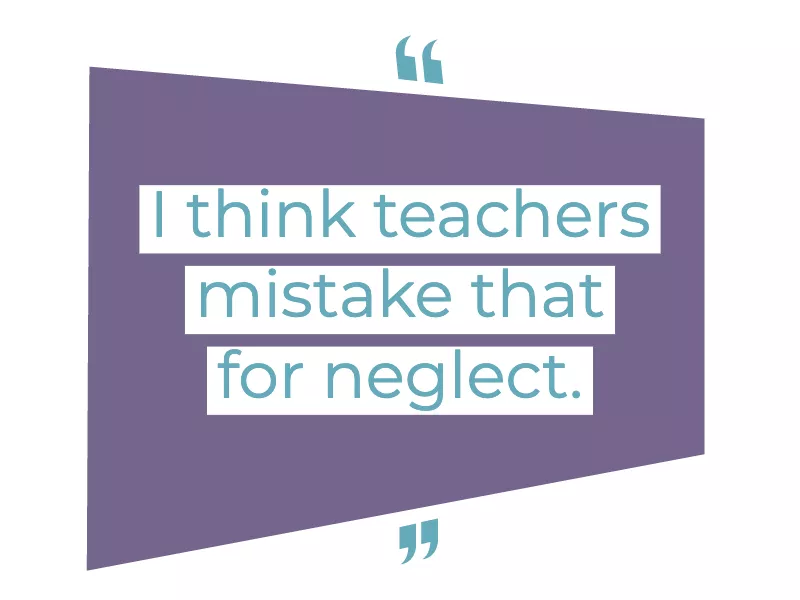
SL: I didn’t want her to be treated differently in school. I saw it happening a little bit when she was in kindergarten and first grade. I didn’t want her to be labeled in any way, especially because I wasn’t available most of the time. I couldn’t volunteer in class. I couldn’t be involved. I could barely even bring cupcakes on her birthday. I think teachers mistake that for neglect, and if a kid is acting out, they’re not empathized with as much because they tend to blame the parents more.
I even had someone comment on Goodreads about that, that they look at kids on low income differently [after reading the book] because they used to think that their parents just didn’t care, but now they realize they’re just working.
Becoming a Maid
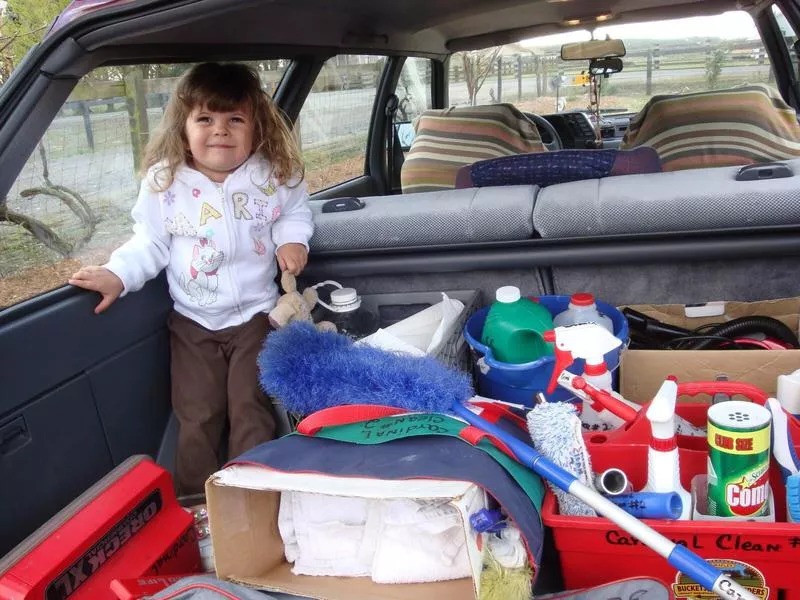
Mia stands amid all of Land’s house-cleaning equipment. Stephanie Land
And working Land did. She decided to become a maid because she needed to work during hours that childcare would be available, and at a facility that would accept childcare grants. Since it was the height of the recession, the typical day jobs previously available to women without college degrees were taken up by people who’d been laid off.
Cleaning houses became one of Land’s only options. She started by working for a cleaning company and then eventually took on private clients as time went on.
FM: What do you wish people who have house cleaners knew about them?
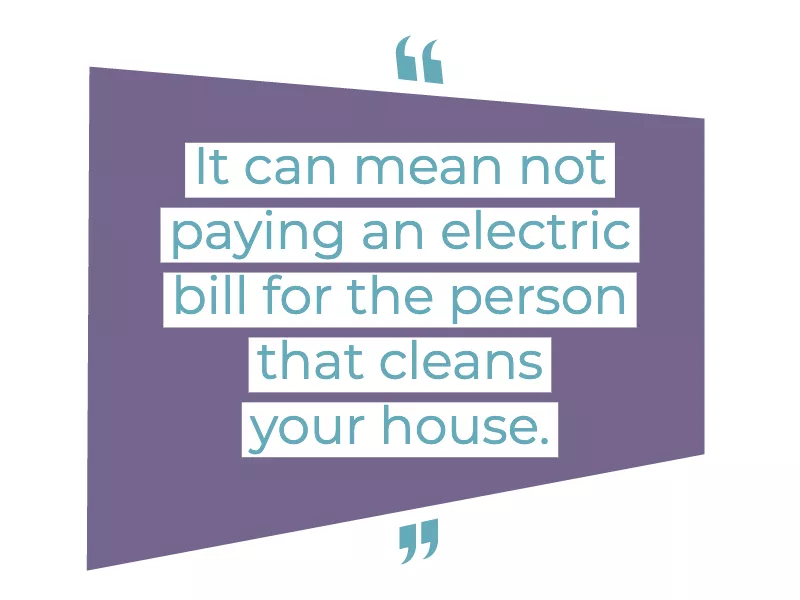
SL: I think it’s important to get to know the person who’s cleaning up after you to make them less invisible. One thing to consider, besides always tip, is that the houses I liked the best were the ones that, if they were taking stuff to Goodwill, they left me a box to sift through because they knew I was in a difficult situation, and they had really nice stuff that they were just getting rid of. I don’t think they would have done that unless they really took the time to get to know me and knew that I had a kid and that I was working at an incredibly difficult job for not much money.
I’ve also asked for people to be aware that, if they suddenly cancel their clean, then that cleaner won’t get paid for those hours, and that can be an incredible hardship. I’ve heard of some people still paying for the clean or paying half the amount just so that their house cleaner can still get close to what they normally would have gotten paid. It’s just those little realizations that something that benefits you, if you suddenly decide not do it one day, can mean not paying an electric bill for the person that cleans your house. Also, pick up your clutter before they get there.
FM: You write about your clients in a way that shows compassion, even saying they were “people to hope for and want good things for.” What about house cleaning made you feel that way?
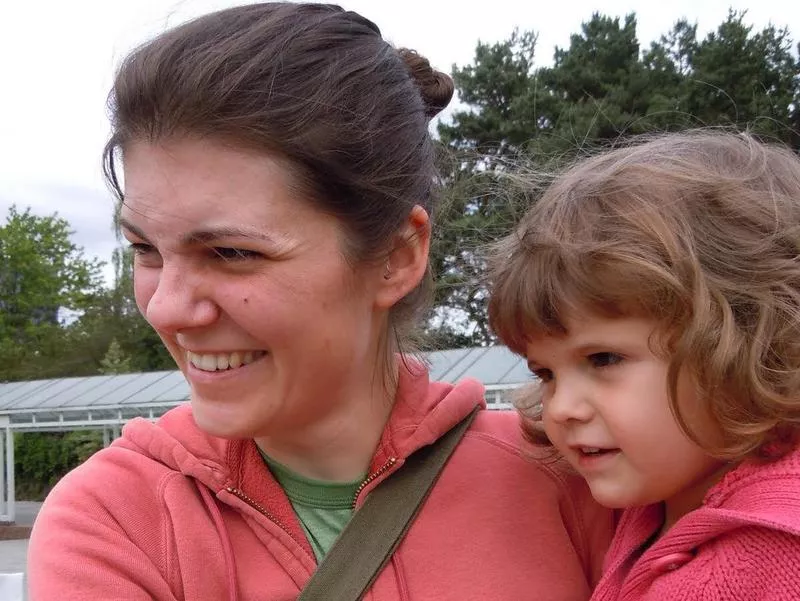
Land and Mia pose together. Stephanie Land
SL: I went into the job thinking that their life meant everything was happy and good because, when you look at the ‘house on the hill,’ you think they must have everything figured out. That was happiness to me, and then going in there and seeing how they were hardly ever there and how they were struggling with illnesses and chronic pain, but also just seeing how hard they worked for spaces they paid for me to maintain and spaces that they hardly used, that seemed incredibly sad to me.
It was a very different feeling going into a house that was happy and then going to one that was not. There were a few houses that it felt really good to be in there, just the feel of the house, you could tell that, when they were home, they were generally happy. I think I just wanted that feeling for everybody because why wouldn’t you? You want people to be happy. So, part of the disenchantment process was, ah man, these people are struggling just like I am, and then not wanting that for them.
FM: What do you think are the biggest misconceptions about people, especially single moms, who get government assistance?
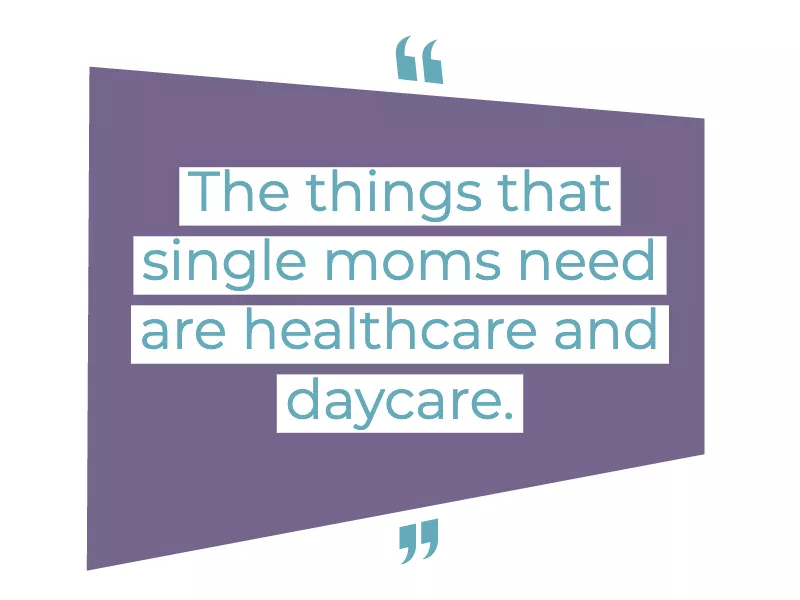
SL: We like to forget that single mothers are doing the job of two or three people, and they’re not getting paid any more; they’re getting paid less. So, we look at them and tell them to survive off this little amount of money and then don’t support when they reach out for help and get the resources that are available to them. We call them handouts.
We also like to determine who’s the deserving poor. It’s a single mother who’s widowed or lost everything in a house fire. She’s deserving, but a single mother like me, who had a baby out of wedlock or didn’t have a college education and brought a child into poverty essentially, is not a deserving poor person because I made bad decisions and brought it on myself. It’s kind of a defense mechanism to tell ourselves that we’ll never be in that place. There’s also a certain amount of resentment that taxpayers feel about safety net programs, even though only like 9 percent of the tax budget goes to them.
We like to be giving, but we like to do it in ways we feel good immediately and in Band-Aid ways, too. I’m thinking of times when someone helped me, but what am I going to do with dish towels? It made them feel good, so whatever, but the things that single moms need are healthcare and daycare. They need to not be required to constantly prove to people that they’re working just to get a $1 a meal per person in their home. They need to be able to get a college education without being punished for that.
FM: In what ways do you hope “Maid” defies some of these misconceptions, setting the record straight for those who have never faced similar issues?
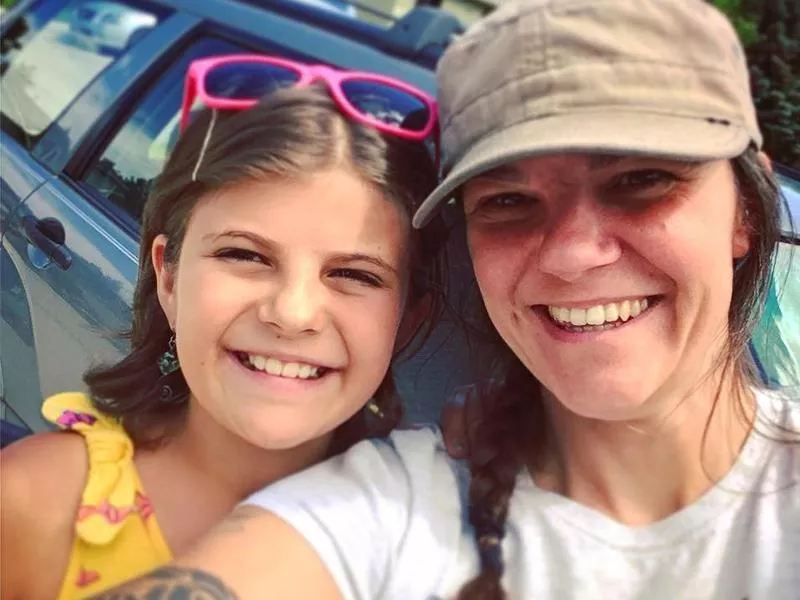
Land celebrates Mia’s 11th birthday. @stepville / Instagram
SL: I’ve had a lot of people realize just how privileged their lives are. There’s a lot of invisible privileges that people have, whether it’s supportive families or some kind of savings account or their parents helped them with a down payment on a house or they’re white and were able to go to college right out of high school. There’s a long list of how people can be privileged without really knowing it, but I’ve seen a lot of comments recently saying, ‘I had no idea how privileged I am.’ I find that encouraging.
I think systemic racism and systemic poverty go hand in hand. I hope that, since this book got the average reader’s attention and that it is being widely read, that people start listening to people of colors’ stories. They’ve been in the dregs of poverty for hundreds of years, doing horrible jobs that are essentially making our lives easier and better in this very invisible way.
I really hope people start making eye contact with the women who clean airport bathrooms. I always try to stop and thank them, which is probably weird to them, but I think it’s important to recognize how many people are out there making your life easier. And we are just making their lives harder because we are not supporting them in the way that they need with living wages and access to healthcare and education and all this stuff.
I’m kind of hoping that, even though there is such an extreme wage gap and the classes are dividing more and more, that people will start to see each other as human beings. Just remember that, when you leave some garbage or leave your hotel room a complete mess, there’s a human being that’s going to clean up after you. Maybe I hope the book encourages people to clean up after themselves a bit more.
FM: And to just realize their privilege. It’s fascinating what you don’t know until you start talking to people more…
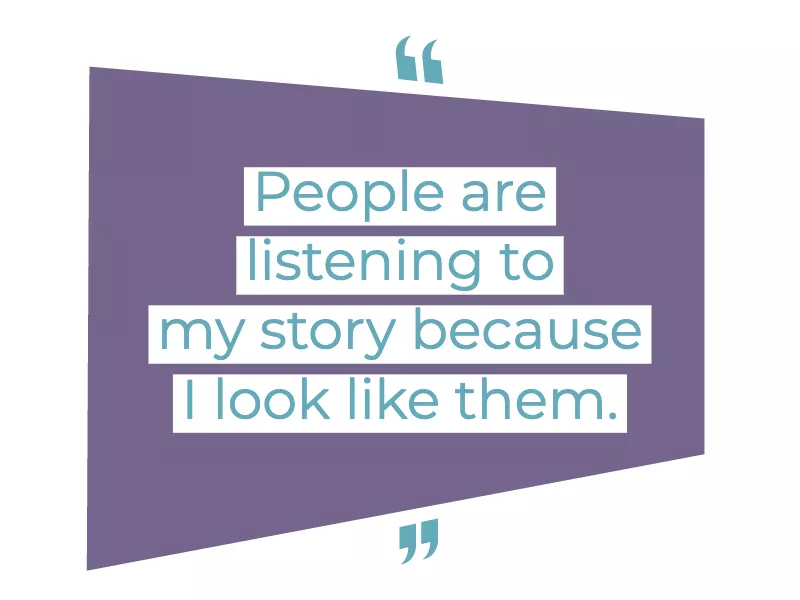
SL: At most of my book events, I look out at a very white audience. That kind of disappoints me a little bit. I’ve kind of known for a while that people are listening to my story because I look like them, and I’m a ‘success story,’ and I’m educated and can articulate words. It’s ridiculous; it drives me nuts. But I took that on even though I knew that. I just constantly try and recognize my privilege in all of this. This is exhausting work for me flying all over the place, but I do it because I hope that it will eventually help improve someone’s life, especially someone who’s in a way-worse situation than I was.
I was on a panel at the Tucson Book Festival, and I sat next to Jose Vargas who wrote ‘Dear America: Notes of an Undocumented Citizen.’ I was talking to him about how one person on Twitter asked, ‘Why should we listen to a white woman’s story?’ He said that’d make a really interesting essay, so I’ve been thinking about that a lot.
FM: How did writing this book change how you felt about your relationships, especially as a mother?
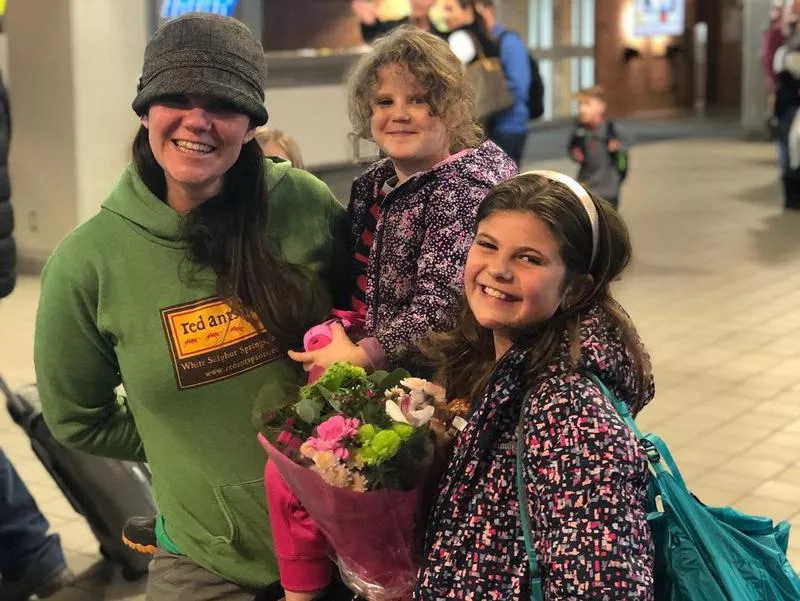
Land, left, poses with her daughters, Caroline, center, and Mia, right. @stepville / Instagram
SL: Sometimes, mothers need to be mothered, too. I kind of learned how to mother myself. I try to make sure that my kids know that they’re loved as much as possible; I try to sincerely do that. When I’m really feeling love for them, I reach out and hug them. I try to make up for what my life lacked growing up and just know that I’m going to always be there in a very predictable way. I want them to know that I’ll always be here to support them.
But I’ve also recognized that there’s no possible way that I can be enough. Before, that was hard because I felt this overwhelming amount of pressure to do everything and be everything to the point where I had absolutely nothing left to give. Since we’ve been in Missoula, I’ve been able to find really good people that I can call if [my daughters] need something I can’t provide. I can’t always be the one that they come to talk about things. So, I think that has been how I’ve mothered myself in realizing that it really does take a good community to raise children. It’s really hard to do things alone, and it’s not shameful to admit that you’re struggling or to reach out for help.
FM: What’s the difference of being a mother to one and a mother to two, and what is the difference of the life experiences that both of your daughters have had?
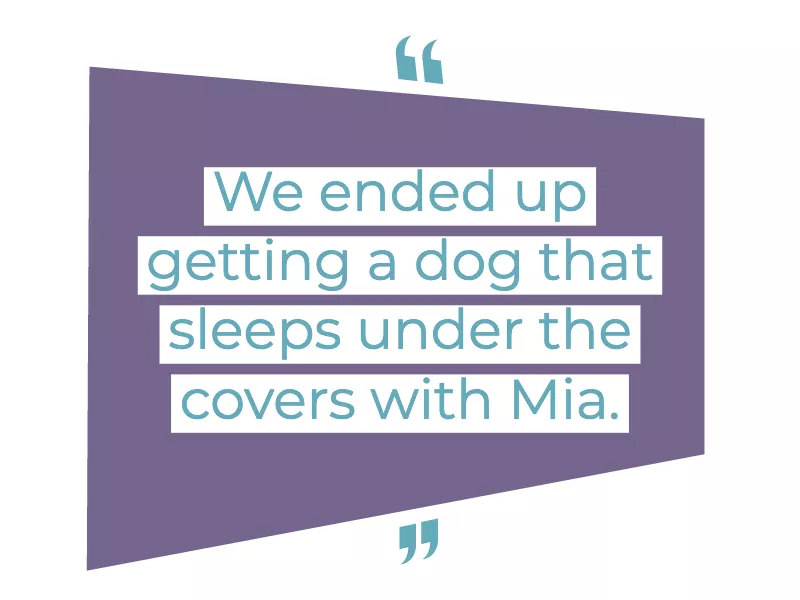
SL: When I found out about Coraline, I was excited at the opportunity to do everything completely on my own. But I tell people that I severely overestimated my ability because it’s hard. Coraline has had a very different relationship with me because I’ve primarily worked from home, so I’ve just always been around. She had horrible separation anxiety when she was a child; I couldn’t even put her down and take a shower without her screaming. But now she’s this outgoing creature who loves everybody. Even though I’ve been gone a lot, she doesn’t freak out over me leaving. I don’t know if you know about attachment parenting, but you try to create this foundation so they have something to jump off of later in life. I’ve definitely seen that with her.
It was hard on Mia though when I suddenly had this tiny baby. I think she kind of expected me to give birth to a four-year-old that she could play with. It was hard for me, too, because I couldn’t lay with her as much and rub her back. So, we ended up getting a dog that sleeps under the covers with Mia. There have definitely been times when I’ve ached to fully parent Mia, but I haven’t been able to do it because I had this other little human who needed me, too. I like to remind Mia that she had me all to herself for seven years, but sometimes we miss the old days. I think every parent goes through that whether you’re supported and have a spouse or not. It’s different. I hear three is even harder.
FM: What changed for you as a result of writing this book? And what are you currently working on?
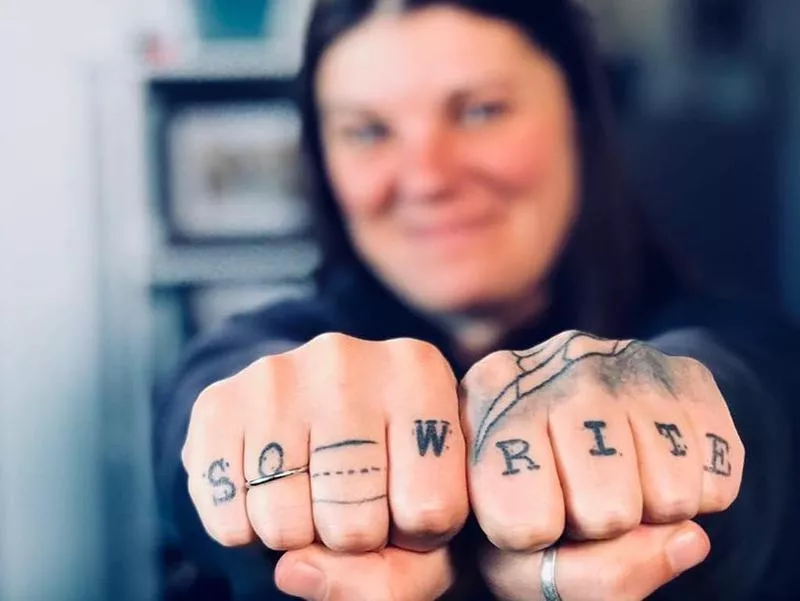
Land got knuckle tattoos for her 40th birthday. @stepville / Instagram
SL: I put the book down for several months and was waiting for edits. My editor came back to me and wanted me to go really deep and asked me to flush out the part with my mom. It was incredibly painful, but I’m glad that I did. All through college, I struggled trying to figure out how and why and what it meant to essentially break up with my mom. That scene in the book [when I leave her in the restaurant] was one of the last times I saw my mom, and I looked at that version of myself with such compassion. It changed me fundamentally because I always had this black hole of failure within me, and that’s gone. I went from feeling like someone who had leached off the system for 10 years to someone who had truly survived something incredibly difficult. It makes me more confident.
As far as being a writer, I still struggle with feeling like I’m a true writer. Everyone wants to be the Raymond Carver or Cormac McCarthy and have their opus out there. I still feel like I have yet to write mine, but I tried to keep the story my own as much as possible and not feel like I needed to use all this literary jargon and make it complicated. It truly is my book and my story. I was able to include a lot of things that I really wanted to be out there in the world. I walked away feeling good about it, maybe not when I had read it 20 times, but I’m glad it’s getting attention and also glad that I was able to put it out there in a way that stayed true to my story.
FM: What does the future hold for you and your family?
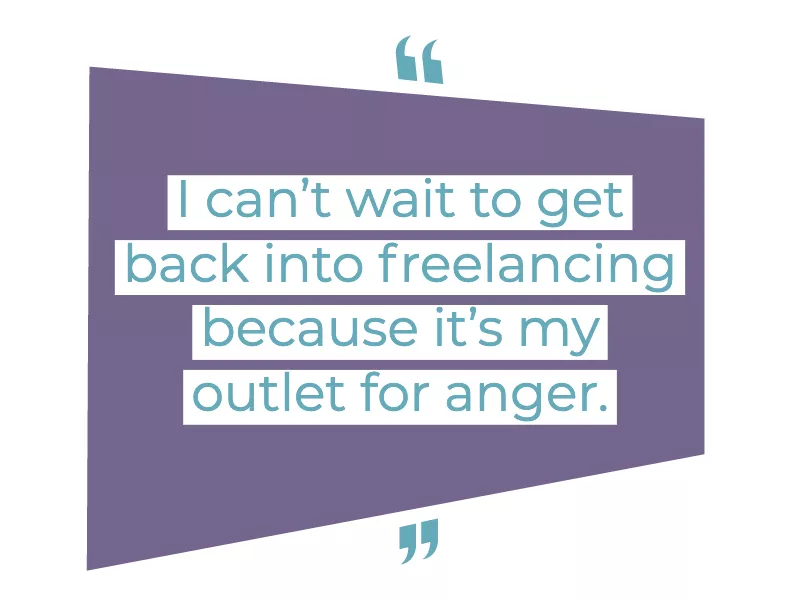
SL: I joke that I’m a professional emailer these days, so not much writing is going on because of that. I’m still caught up in this whirlwind of events, and I guess I’m a public speaker now, which I never thought I would say. So, I’m focused on that quite a bit, but I can’t wait to get back into freelancing because it’s my outlet for anger. And I’ll start working on the next book when I can. It’ll happen.
I’m a writer. It’s how I process things. I just haven’t even begun to try to process the past month, but I will eventually. The interaction with Jose telling me my idea would make a really good essay was interesting. I’ve filed that away in my brain, and eventually that will start to itch, and I’ll have to get it out. But yea, right now, it’s just trying to keep up with what’s going on.